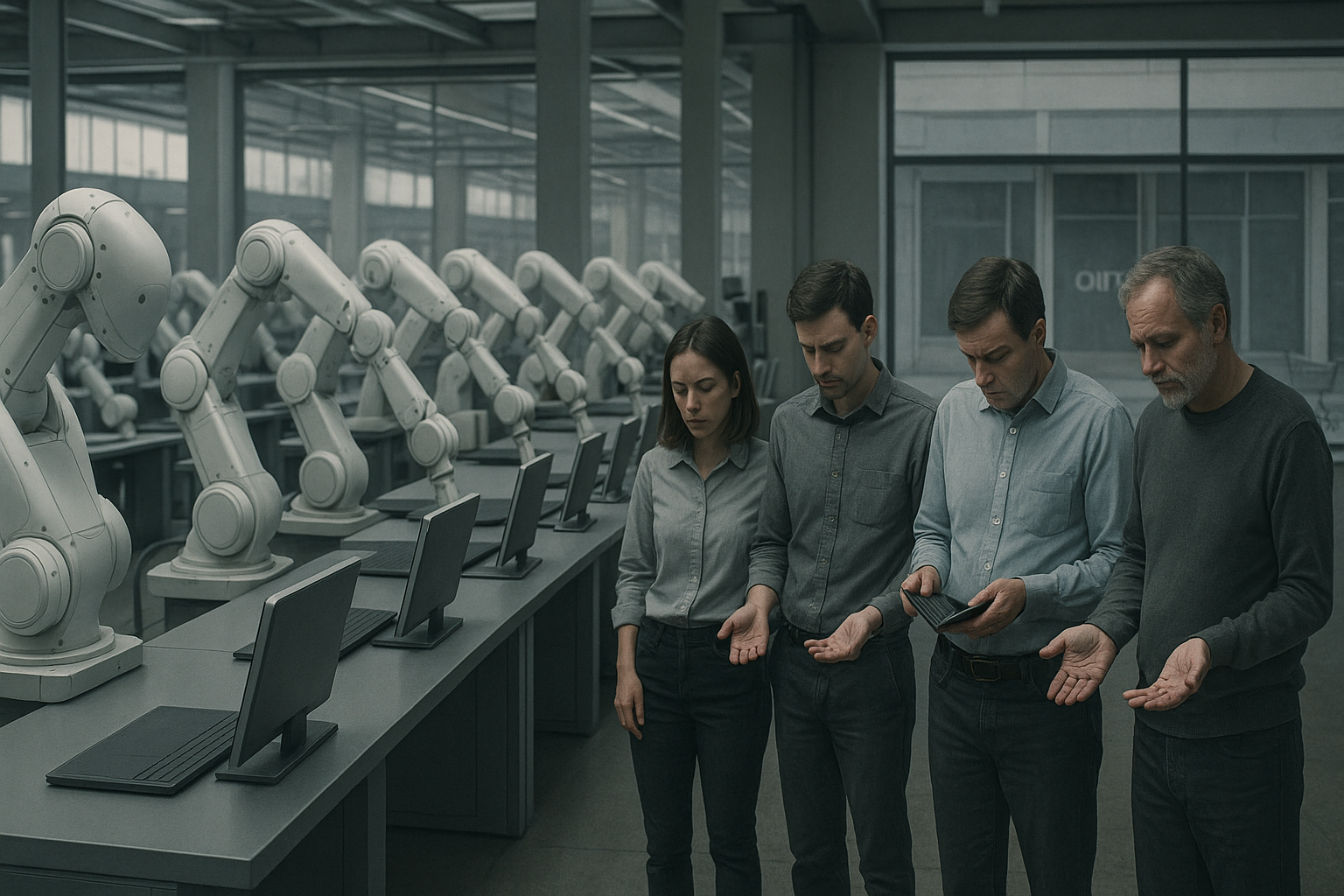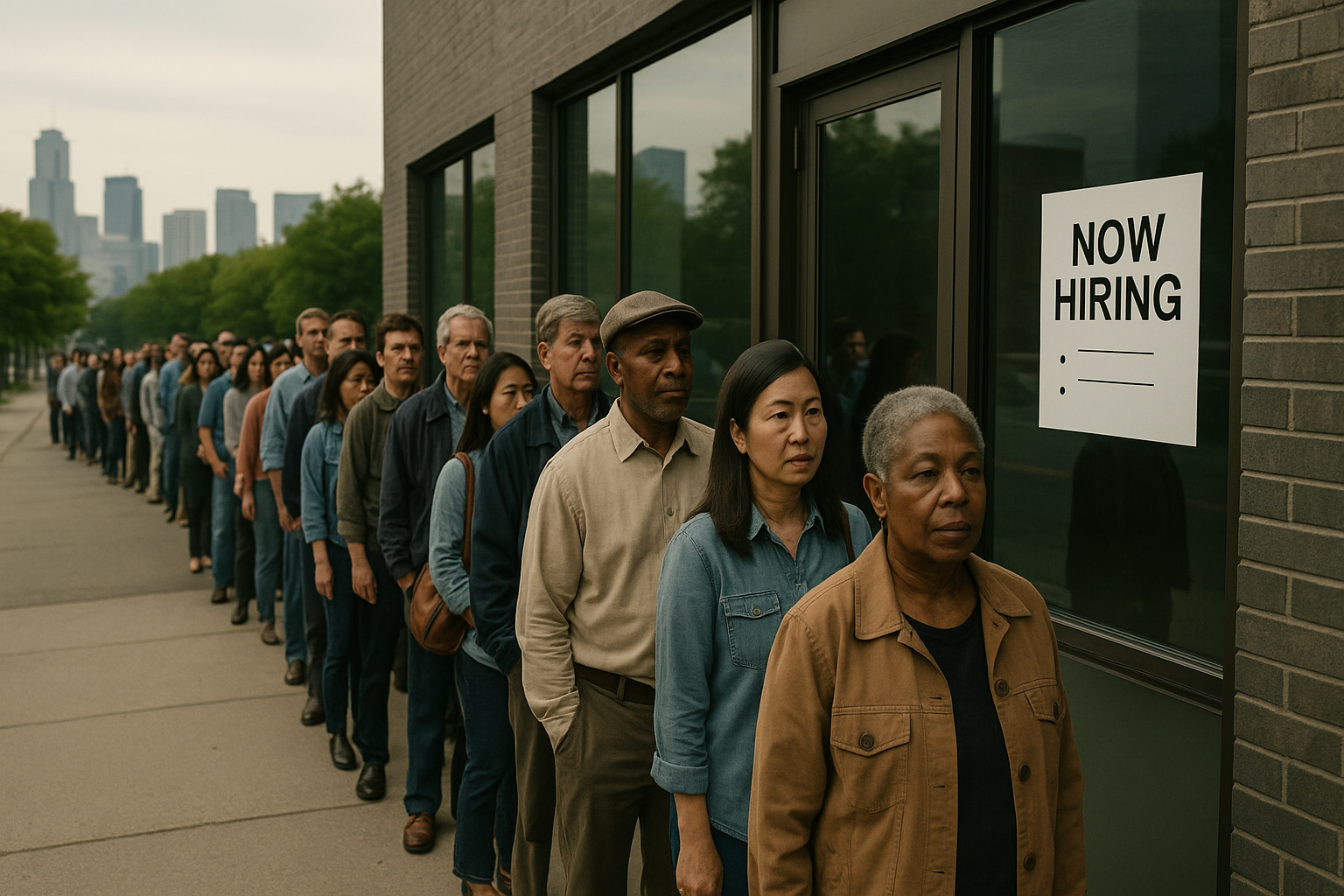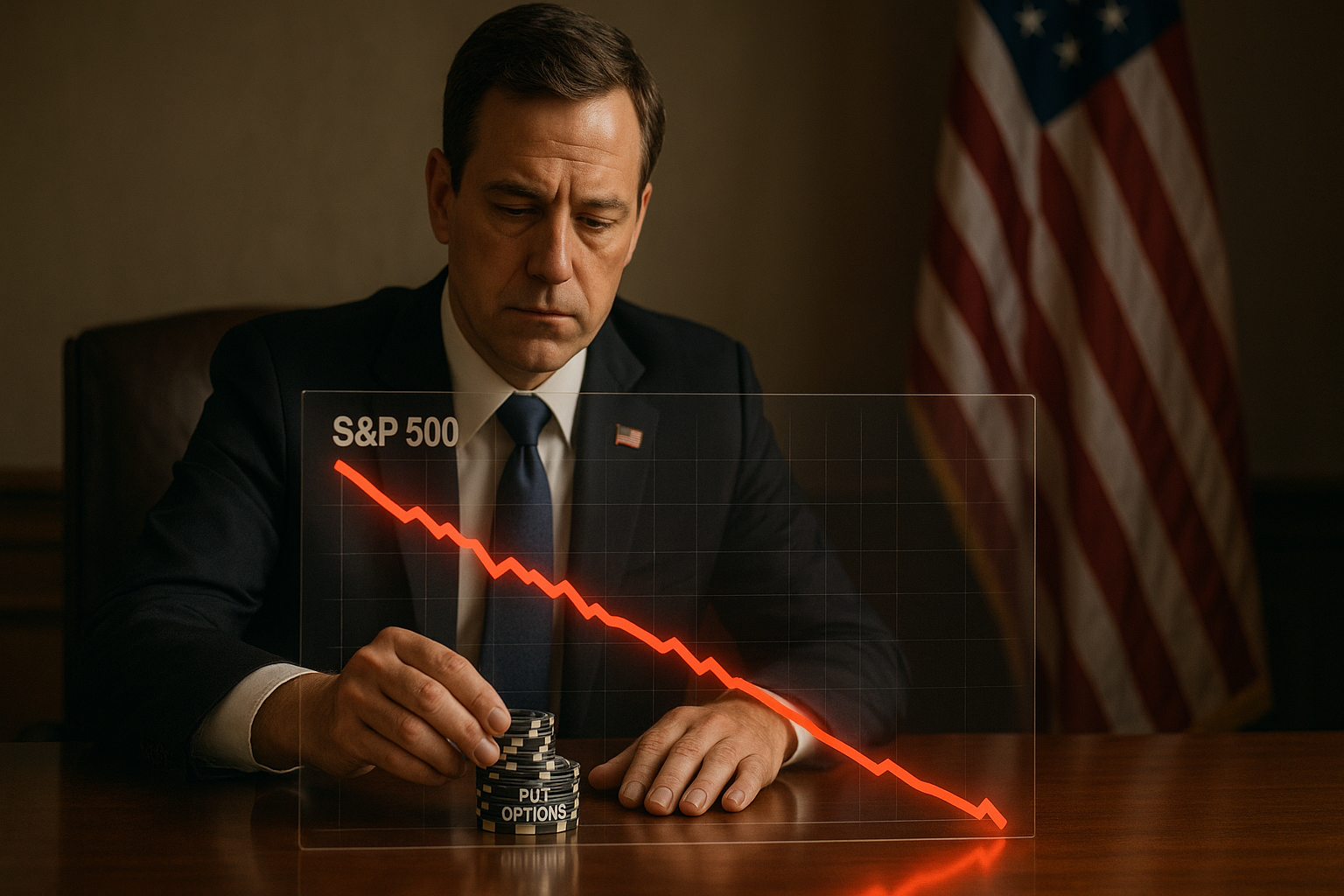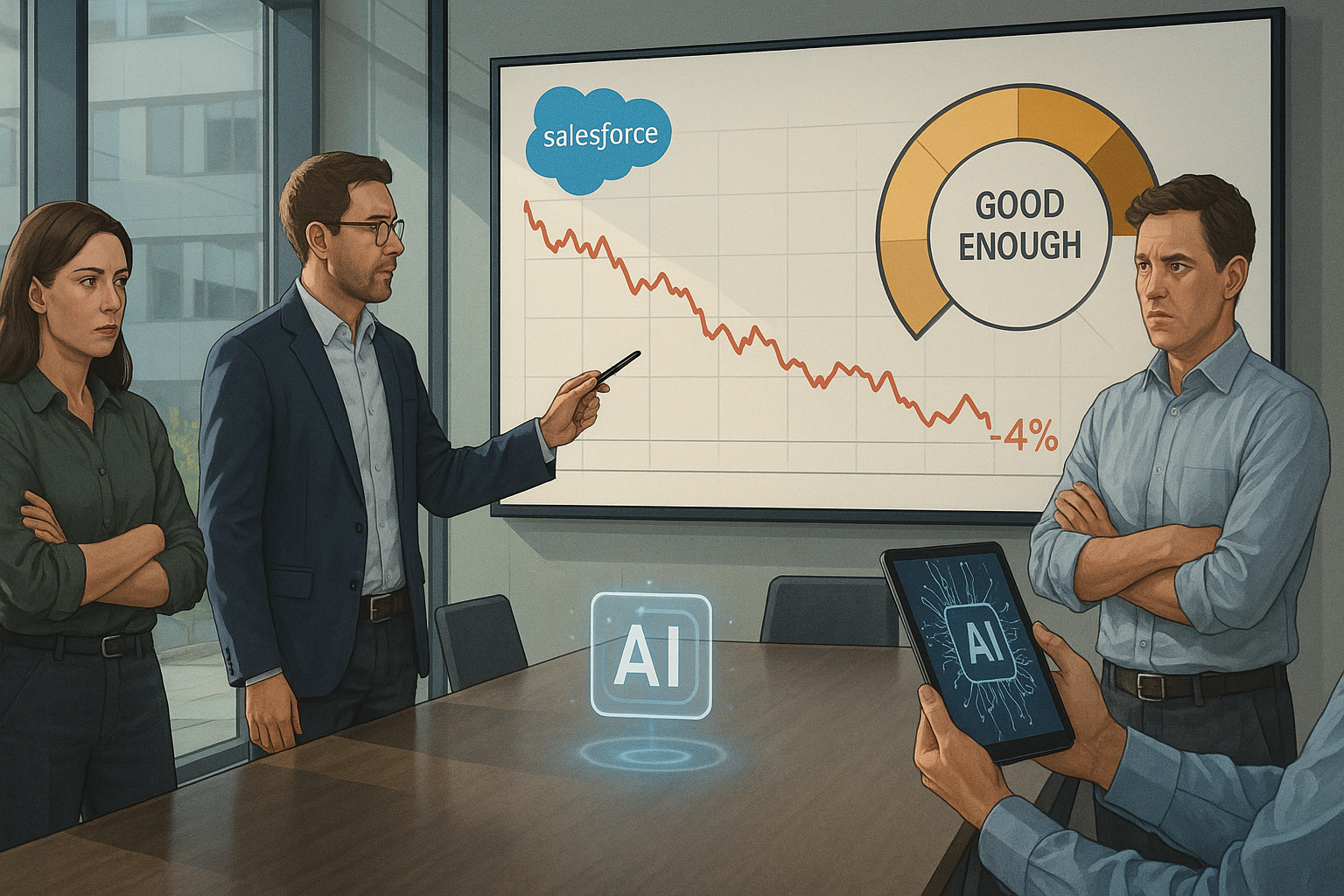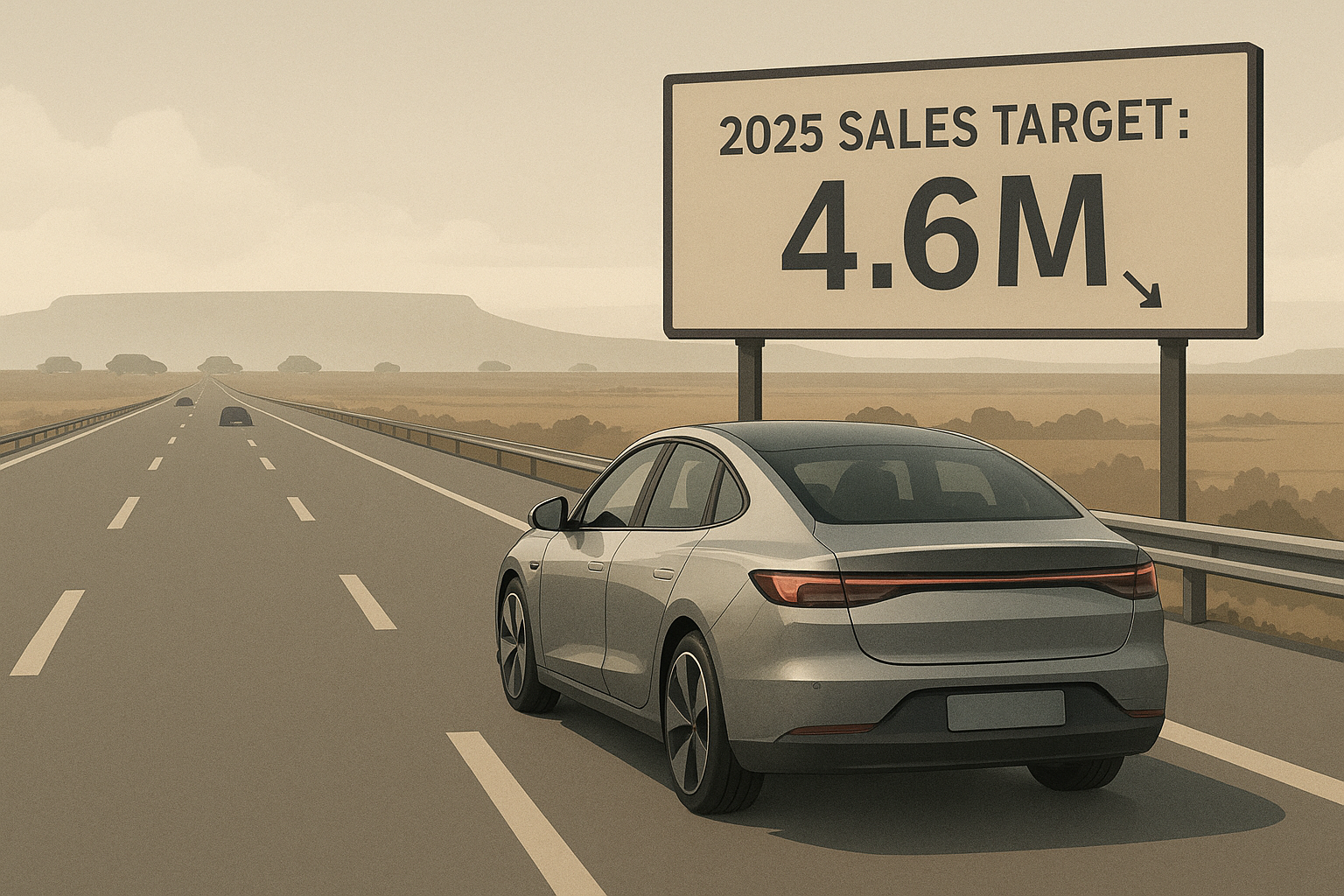There's a certain irony I can't help but notice in Silicon Valley's latest obsession. Tech giants are pouring billions—yes, with a B—into artificial intelligence systems designed to replace human workers, all while seemingly ignoring a fundamental economic question: Who exactly will have money to buy their products when AI has rendered large swaths of the workforce obsolete?
It's the elephant in the boardroom nobody wants to acknowledge.
I've sat through my fair share of investor presentations on AI initiatives. They all follow roughly the same template: glowing projections about reduced operational costs, increased efficiency, and the elimination of "human error" (which, let's be honest, is code for "getting rid of people with salaries").
The quarterly earnings script practically writes itself: "We're thrilled to announce a 35% reduction in labor costs following our strategic AI implementation..."
But hold on a second. Let's think this through.
When Company A replaces its customer service team with chatbots, that might work wonderfully—for them. But what happens when Companies B through Z do the same? When the marketing departments go next? Then accounting? Management? Suddenly we're facing an economy where purchasing power has been gutted.
Look, I get capitalism. I understand the relentless pressure to maximize shareholder value and reduce costs. But there's something particularly shortsighted about this AI gold rush that reminds me of what economists call the "fallacy of composition"—assuming what benefits one company in isolation would still benefit all companies if they did the same thing.
The standard response I hear (and I've heard it plenty) is that we've weathered technological disruption before. "The Industrial Revolution displaced agricultural workers but created factory jobs! Automation created service sector opportunities!" True enough.
But this time feels different.
Previous technological revolutions primarily mechanized physical labor, opening new frontiers for human cognitive work. AI aims directly at that cognitive layer—the last refuge of human competitive advantage. What exactly is the next frontier when machines can potentially outthink, outwrite, and outperform us across domains we once considered uniquely human?
It creates what I call the "terminal consumer problem." Every business model ultimately depends on someone having both the desire AND financial means to purchase goods and services. Remove that terminal consumer through widespread job displacement, and the entire economic chain collapses.
(And no, selling exclusively to the ultra-wealthy isn't a scalable solution for most businesses—there simply aren't enough billionaires to go around.)
Some proposed solutions exist, of course. Universal Basic Income has its champions, though implementing it would require political courage that seems... well, let's just say it's in short supply these days. Others envision a post-scarcity future where AI-driven abundance makes traditional economic constraints irrelevant—which strikes me as somewhat optimistic given our track record with equitable resource distribution.
The cruel paradox is that we're witnessing perhaps the largest technological investment boom in history built on a business case that, if universally successful, would undermine its own foundation. It's like a snake eating its own tail while simultaneously pitching investors on the promising future of tail consumption.
Will we thread this needle? Maybe. There's a chance AI enhances productivity while leaving enough meaningful, well-paid human employment intact to maintain consumer demand. But markets aren't particularly adept at managing these transitions without significant economic pain along the way.
For investors wondering where to place their bets—perhaps the real opportunity isn't in which company builds the most sophisticated AI, but in which ones recognize that customers with disposable income aren't an optional component of long-term profitability.
Revolutionary concept, I know.
